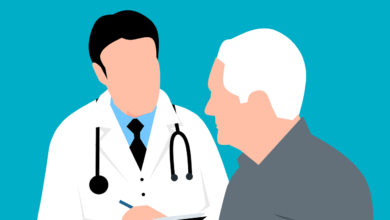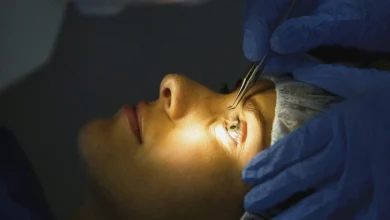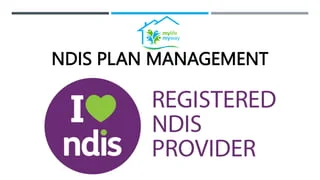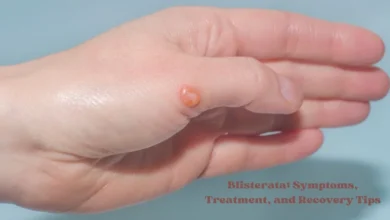Emergency Dental Services in Springfield: What to Do When You Need Immediate Care

Understanding Emergency Dental Services
Emergency dental services are crucial for addressing urgent dental issues that can’t wait for a regular appointment. Understanding what constitutes an emergency, the common types of emergencies, and when to seek help is essential for effective treatment and pain management.
Definition of Emergency Dental Care
Emergency dental care involves immediate attention to dental problems that pose significant pain, risk of infection, or potential for serious complications. This care is crucial when regular dental services cannot address the issue promptly.
Common Dental Emergencies
- Toothaches
- Chipped or broken teeth
- Knocked-out teeth
- Severe bleeding
- Infections or abscesses
These emergencies require swift action to prevent further damage or long-term health issues.
When to Seek Immediate Dental Care
Immediate dental care should be sought if there is severe pain, significant bleeding, or visible damage to the teeth or gums. Delaying treatment can lead to more severe complications and even permanent damage.
Locating Emergency Dental Clinics in Springfield
Finding the right Springfield emergency dentist can be crucial when you face a dental crisis. Knowing where to look and what to expect can help alleviate stress and ensure you receive prompt and effective treatment.
How to Find Nearby Emergency Dentists
- Search online for ‘dentist Springfield‘ or ‘springfield emergency dentist‘.
- Check local directories and dental association websites.
- Ask for recommendations from friends or family who have had emergency dental care.
What to Look for in an Emergency Dental Service
- Availability: Ensure the clinic offers 24/7 emergency services.
- Services offered: Look for clinics that provide comprehensive services including ‘dentures Springfield‘ and ‘teeth whitening Springfield mo’.
- Credentials: Verify the qualifications and experience of the dental staff.
Tips for Choosing the Right Dentist
- Consider proximity to your home for quick access during emergencies.
- Read reviews and testimonials to gauge patient satisfaction.
- Ensure the clinic practices ‘family dentistry Springfield VA’ to accommodate all family members if needed.
Remember, the right preparation can significantly reduce the impact of a dental emergency. Choose wisely to ensure you and your family receive the best possible care in times of need.
Steps to Take During a Dental Emergency
When faced with a dental emergency, knowing the right steps to take can be crucial for managing pain, preventing further damage, and ensuring a successful treatment outcome. Here are the essential actions to consider:
Initial Actions to Manage Dental Pain
- Take over-the-counter pain relievers such as ibuprofen or acetaminophen to alleviate pain.
- Apply a cold compress to the affected area to reduce swelling.
- Rinse your mouth with warm salt water to clean the area and reduce bacteria.
Handling Broken or Knocked-Out Teeth
- Locate the tooth or pieces of the tooth and handle them by the crown, not the root.
- If the tooth is whole, try to reinsert it into the socket. If not possible, keep it moist by placing it in milk or saliva.
- Visit a dentist immediately—time is critical in saving the tooth.
Preventing Further Damage Before Reaching the Dentist
- Avoid eating hard or sticky foods that can cause more damage.
- Continue to keep the tooth or dental area clean and avoid touching or probing with your fingers.
Note: Always prioritize getting to a dentist as soon as possible in any dental emergency. Delays can lead to more severe complications and reduce the chances of a successful treatment.
What to Expect at the Emergency Dental Visit
When you visit an emergency dental clinic, the experience can be quite different from a regular dental appointment. This section will guide you through the typical processes and what you might encounter during your visit.
The Examination Process
Upon arrival, the dental team will quickly assess your situation to determine the severity of your dental emergency. You will likely undergo a series of diagnostic tests, including X-rays, to pinpoint the exact nature of your dental problem.
Possible Treatments and Procedures
Depending on the diagnosis, the treatment options can vary significantly:
- Pain relief medication
- Temporary or permanent fillings
- Root canal therapy
- Tooth extraction
- Dental crowns or bridges installation
Understanding Costs and Payment Options
Emergency dental services can be expensive, and it’s important to understand the costs upfront. Most clinics offer a variety of payment options, including:
- Direct payment
- Dental insurance
- Payment plans
Note: Always confirm whether your insurance plan covers emergency dental procedures to avoid unexpected expenses.
Pediatric Emergency Dental Care
When it comes to pediatric emergency dental care, the approach and considerations differ significantly from adults. Children’s dental emergencies require not only immediate and effective medical attention but also a sensitive approach to manage their anxiety and fear.
Special Considerations for Children
Children are not just small adults; their dental care needs are unique and require a specialized approach. Pediatric dentists are trained to handle the emotional and developmental needs of children during dental emergencies. It’s crucial to ensure that the dental environment is child-friendly to help reduce stress and anxiety.
How to Calm a Child During a Dental Emergency
- Speak in a calm and reassuring tone.
- Use simple words to explain what is happening.
- Allow them to bring a favorite toy or blanket for comfort.
These steps can significantly ease a child’s fear and make the emergency situation more manageable for both the child and the caregiver.
Common Pediatric Dental Emergencies
- Toothaches
- Knocked-out teeth
- Broken teeth
- Bitten lip or cheek with excessive bleeding
Note: Immediate action can prevent further damage and reduce the need for extensive dental procedures later. It’s important to contact a pediatric dentist as soon as possible when these emergencies occur.
Aftercare Following Emergency Dental Procedures
Proper aftercare is crucial to ensure healing and prevent complications after receiving emergency dental procedures. Following your dentist’s specific instructions will be key to a successful recovery.
Post-Procedure Care Tips
- Follow the dentist’s instructions on medication and oral hygiene.
- Eat soft foods and avoid hot beverages for the first few hours.
- Rest and avoid strenuous activity for at least 24 hours.
Signs of Complications to Watch For
Be vigilant for signs of infection or unusual pain after dental procedures. Immediate contact with your dentist is advised if you experience:
- Persistent or severe pain
- Swelling that worsens over time
- Signs of infection such as fever or pus
When to Follow Up with Your Dentist
Regular follow-up appointments are essential to monitor healing and address any concerns. Typically, a follow-up should be scheduled:
| Time after Procedure | Purpose of Follow-up |
| 1 week | Check healing progress |
| 1 month | Assess need for further treatment |
It’s important to keep all scheduled follow-up appointments to ensure the best outcome after your emergency dental care.
Conclusion
In conclusion, knowing how to access emergency dental services in Springfield is crucial for addressing sudden dental issues effectively. Whether it’s a broken tooth, severe pain, or an accident, Springfield offers various options to ensure you receive prompt and appropriate care. Remember to keep the contact information of local emergency dental clinics handy and understand the procedures for immediate care. Taking swift action can make a significant difference in managing dental emergencies, preserving your oral health, and preventing further complications.




